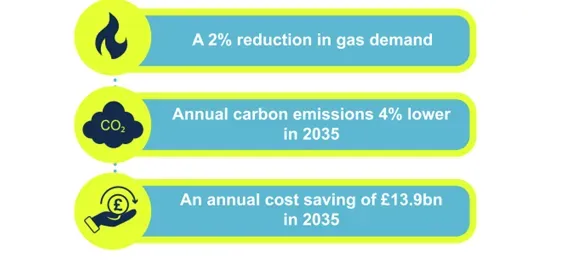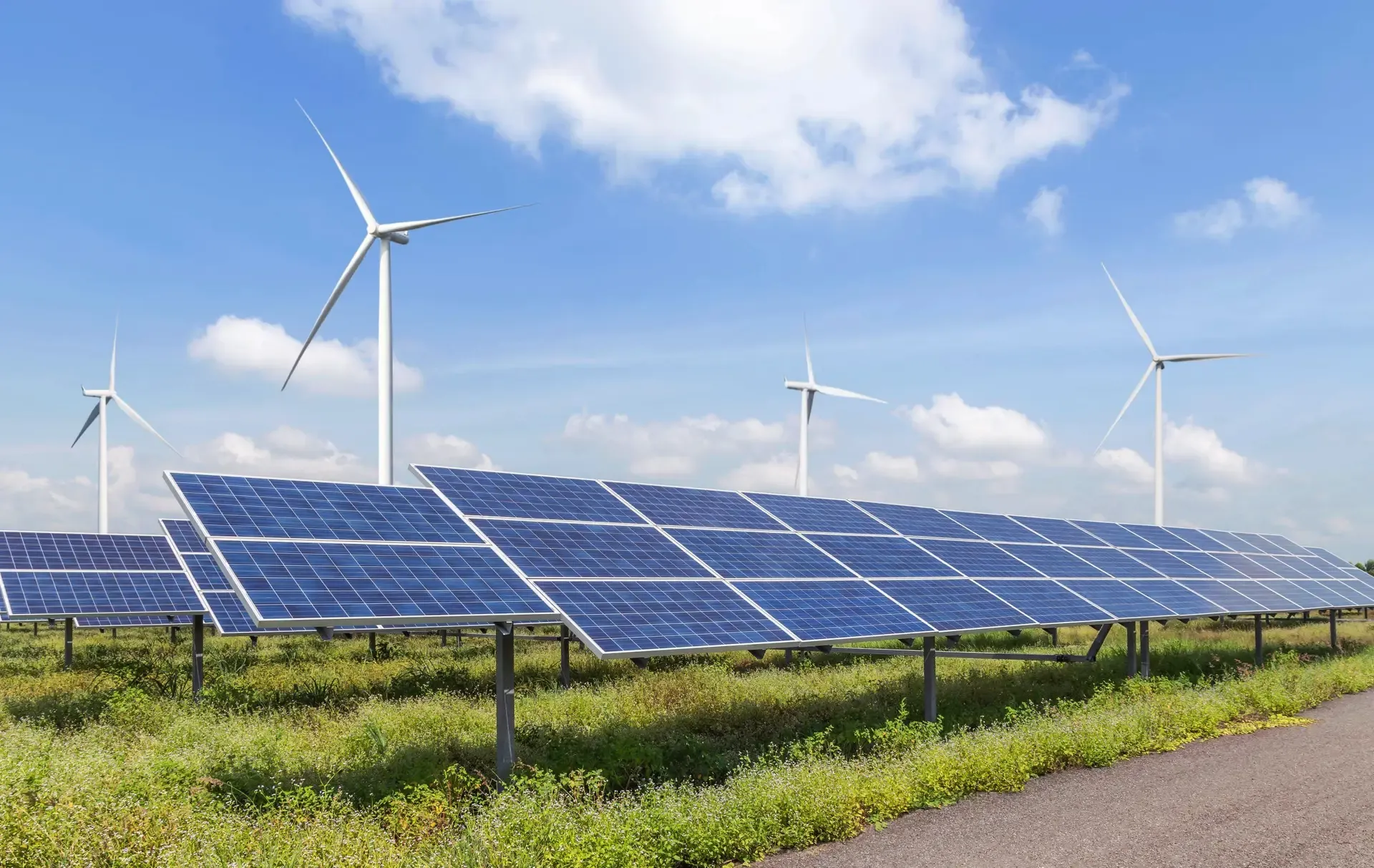"Integrated energy solutions offer an opportunity to reduce costs and carbon by shifting consumption away from peak times."
Anna Moss Senior Consultant
Modelling from Cornwall Insight has shown that in 2035 widespread use of integrated energy solutions could save the UK’s wholesale energy market £13bn per year, representing a 25% cost reduction. The data is included in the independent research paper ‘Integrate to Zero’ prepared by Cornwall Insight and commissioned by the Climate Collaboration Group as part of a wider initiative.
Integrated energy solutions refer to a type of energy system operated by households and businesses where technologies such as solar panels or battery storage systems are optimised to deliver cost and carbon reduction and to provide an efficient and sustainable energy system. Integrated systems, also known as smart energy systems or distributed energy, can cater to various energy requirements, including on-site energy generation, electric vehicle charging, and grid balancing at the national level.
Our modelling shows that an integrated system enables electricity consumption to be shifted from peak times to non-peak times. This flexibility is facilitated by technologies that can respond to fluctuations in wholesale market prices, resulting in lower electricity costs. By enabling demand to shift to periods with cheaper prices and align more closely with intermittent renewable energy sources like solar PV, integrated energy solutions can reduce the need for gas-generated power during peak times. This, in turn, leads to a 4% reduction in carbon emissions as compared to a non-integrated approach.
Figure 1: Carbon and wholesale electricity cost savings from an integrated” scenario vs Fit and Forget”1

Source: Cornwall Insight
Barriers to offering integrated energy solutions are varied and different across market participants. A survey of market experts, included in the paper, sees many cite upfront funding as a key obstacle, with smaller businesses unable to access low-interest loans or other funding required to make a competitive proposition. Moreover, getting people interested and involved in the decision-making process can be difficult, and it can often be challenging to identify the person responsible for these decisions within a business.
Figure 2: Barriers to offering an integrated solution in the business market – online survey response2

Source: Cornwall Insight
Anna Moss, Senior Consultant at Cornwall Insight:
Meeting the significant challenges required to deliver the net zero transition will require continued innovation and investment. Integrated energy solutions offer an opportunity to reduce costs and carbon by shifting consumption away from peak times.
Through using smart charging to shift electricity consumption from electric vehicles to non-peak times of day and optimising the use of small-scale renewable technologies and storage systems installed in homes and businesses, we can reduce our reliance on gas to meet peak demand. Delivering increasing security of supply, lower costs, and lower carbon emissions.
As with any innovative solution, there will be obstacles to implementation, not least cost, however, there can be significant payoffs. We have a long way to go if integrated energy solutions are to reach a 25% reduction in wholesale costs and 4% lower carbon emissions in 2035, and consumer engagement alongside investment will be crucial to achieving these goals. The aim must be to make the transition to the integration solution as simple and straightforward as possible, removing any potential barriers and leaving it as an easy choice for consumers.”

